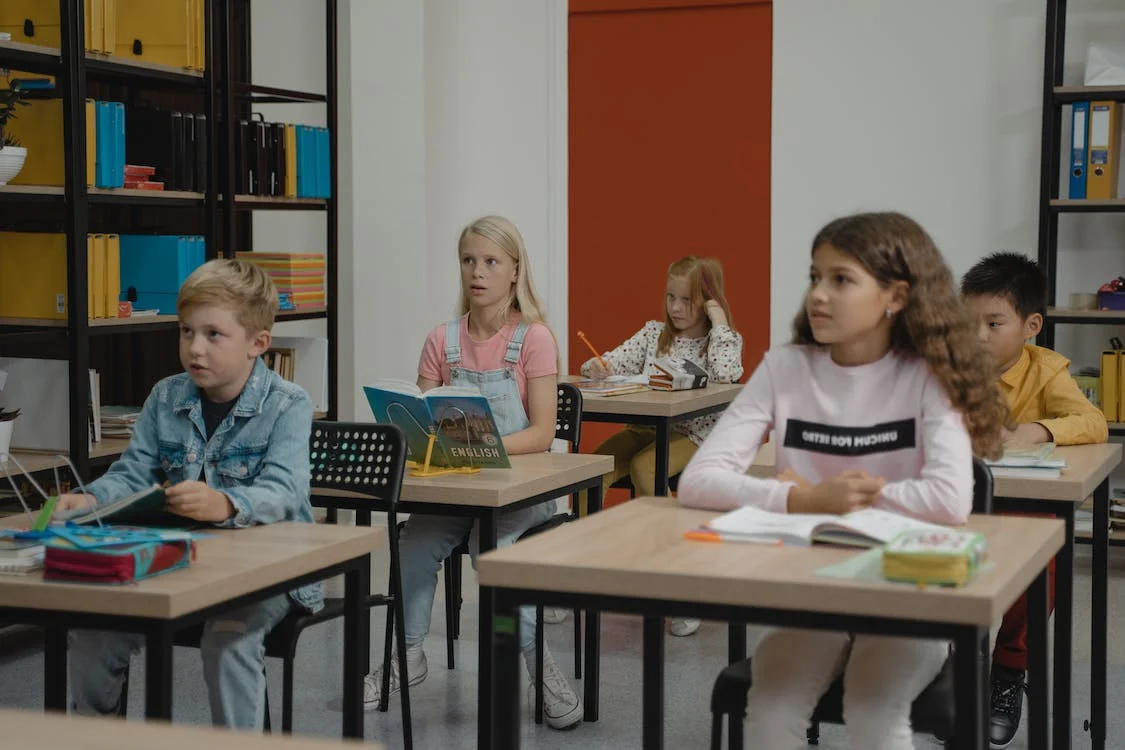Empathy is a crucial skill that helps children develop into compassionate, understanding, and emotionally intelligent individuals. As parents and educators, one effective way to instill empathy in children is through the use of emotion flashcards.
These simple yet powerful tools can help children recognize and understand their own emotions and the emotions of others. In this guide, we will explore the importance of teaching empathy, how emotion flashcards can be used, and offer practical tips for parents and educators.

The Importance of Teaching Empathy
Empathy is the ability to understand and share the feelings of others. It is a fundamental social and emotional skill that plays a significant role in building positive relationships, resolving conflicts, and fostering a sense of community. Teaching empathy to children is essential for several reasons:
1. Improved Communication
Empathetic children are better at communication because they can understand the feelings and perspectives of others. This skill enables them to express themselves effectively and listen to others with empathy.
2. Conflict Resolution
Empathy helps children navigate conflicts by allowing them to see the situation from different viewpoints. It promotes peaceful resolution and reduces aggression or hostility.
3. Enhanced Relationships
Empathetic individuals tend to have healthier and more fulfilling relationships. They can provide emotional support and connect with others on a deeper level.
4. Emotional Regulation
Understanding and identifying emotions in themselves and others is crucial for emotional regulation. Empathetic children are better equipped to manage their own feelings and respond to the emotions of those around them.
5. Building Compassion
Empathy is the foundation of compassion. When children can put themselves in someone else’s shoes, they are more likely to act with kindness and help those in need.

Emotion Flashcards: A Valuable Teaching Tool
Emotion flashcards are a simple but effective tool for teaching empathy to children. These cards typically feature images or drawings of various facial expressions, each representing a different emotion, such as happiness, sadness, anger, fear, or surprise. By using emotion flashcards, parents and educators can achieve several important objectives:
1. Emotion Recognition
Emotion flashcards help children learn to recognize and label different emotions. By matching the facial expressions on the cards to their corresponding emotions, children can develop a vocabulary for expressing feelings.
2. Self-Awareness
As children become more proficient at recognizing emotions in others, they also become more aware of their own feelings. Emotion flashcards provide a visual reference point for children to understand their emotional states better.
3. Empathy Development
By discussing the emotions depicted on the flashcards and talking about scenarios in which these emotions might be experienced, children can begin to understand how others may feel in different situations. This builds the foundation for empathy.
4. Communication Skills
Emotion flashcards facilitate conversations about emotions. Children can use these cards to express their own feelings or inquire about the emotions of others, leading to improved communication skills.
Practical Tips for Using Emotion Flashcards
Now that we understand the importance of teaching empathy and the value of emotion flashcards, let’s explore some practical tips for parents and educators on how to effectively use these tools:
1. Start Early
Introduce emotion flashcards at an early age. Children as young as two or three can begin to grasp basic emotions like happiness, sadness, and anger. As they grow, you can introduce more complex emotions.
2. Make It Interactive
Engage children in interactive activities using the flashcards. Ask questions like, “How do you think this person feels?” or “Can you make the same face?” Encourage children to mimic the expressions on the cards.
3. Share Personal Stories
Share personal stories or examples from books and media that illustrate different emotions. This helps children connect the concept of emotions to real-life situations.
4. Practice Empathy
Use the flashcards as a starting point for discussions about empathy. Ask questions like, “How would you feel if that happened to you?” or “What could we do to help someone who feels this way?”
5. Use Emotion Charades
Play emotion charades by having children act out the emotions depicted on the flashcards. This fun game helps reinforce their understanding of emotions and encourages empathy.
6. Create a Safe Environment
Ensure that children feel safe expressing their own emotions. Encourage open dialogue and let them know it’s okay to feel different emotions.
7. Build an Emotional Vocabulary
Expand children’s emotional vocabulary over time. Introduce more nuanced emotions like frustration, excitement, or confusion as they become more proficient.
8. Be Patient and Consistent
Teaching empathy is an ongoing process. Be patient with children as they learn and practice these skills, and consistently incorporate emotion flashcards into your teaching routine.
9. Encourage Empathetic Acts
Celebrate and acknowledge acts of empathy. When children show kindness and understanding toward others, reinforce and praise their behavior.
Emotion Flashcards: A Path to a More Empathetic Future
Teaching empathy is a vital responsibility for parents and educators. Emotion flashcards offer a valuable and practical tool to foster this essential skill in children. By helping children recognize, understand, and empathize with the emotions of others, we can contribute to their emotional intelligence and their ability to build positive relationships in the future.
As parents and educators, we possess the profound ability to mold the upcoming generation into empathetic and compassionate individuals who will undoubtedly shape the future. Emotion flashcards, though seemingly modest, wield a remarkable influence as we traverse the journey toward a society characterized by greater empathy and understanding. Let us embark on this transformative endeavor today, harnessing the potential of these tools to witness the magnificent transformation of our children into emotionally intelligent and empathetic adults who hold the power to catalyze positive change on a global scale.






